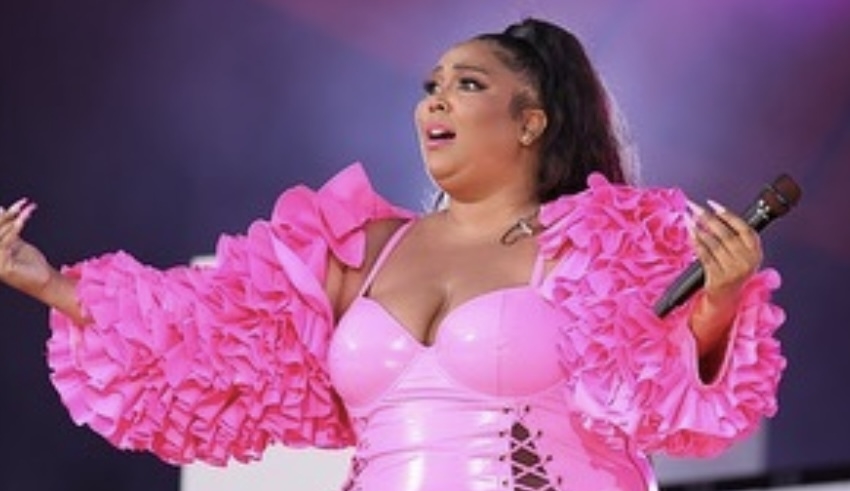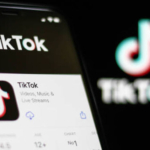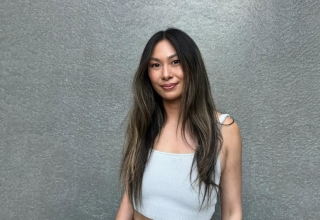
The Grammy-nominated breakup song “abcdefu” is the most recent TikTok phenomenon to achieve chart-topping success and industry recognition.
With more than 1 billion monthly active users, the short-video app has emerged as one of the most effective promotional platforms in the music industry. Several of this year’s Grammy nominees, including “abcdefu” singer Gayle and R&B artist Muni Long, gained popularity after influencers and common users uploaded TikTok videos featuring their music.
“TikTok is 90% of the game,” said Adamm Miguest, CEO and founder of Rapid Launch Media, a company that creates viral marketing campaigns for songs.
Even as the music industry assembles in Los Angeles on Sunday to honor artists and their songs at the Grammy Awards, the relationship between hitmaker TikTok and music labels is showing signs of strain.
According to music industry analyst Tatiana Cirisano of Midi Research, as deals with the major music companies expire, the labels are vying for a portion of TikTok’s advertising revenue. EMarketer predicts that TikTok will earn $14 billion from marketers in 2018.
Based on payments from other platforms such as YouTube, one industry executive argued that TikTok should pay five times more than it currently does.
TikTok restricts music clips to one minute, whereas other streaming apps permit full-length songs.
In light of these licensing discussions, TikTok has this week begun preventing certain Australian users from using certain music in their videos. Under the condition of anonymity, a music industry insider stated, “it’s open to interpretation” why this is occurring now. One individual termed it a negotiation strategy.
TikTok stated that the move was a limited test, one of many it regularly conducts to collect data on user behavior and enhance the user experience.
“This change will not last long, and not all music is affected,” a spokesperson for TikTok said. We anticipate restoring our entire catalog in the near future.
TikTok declined to comment on music label discussions.
Keep Reading
TikTok is a significant venue for the music business due to the service’s popularity among young customers who act as music’s tastemakers. This is why even well-known bands like the Rolling Stones can be found on the app.
According to the most recent data from Midia, 50% of 16-to-24-year-olds use TikTok on a weekly basis, while 40% use it daily. Midia discovered that the app ranks second only to Alphabet’s YouTube as a destination for Generation Z to discover new music.
“TikTok has become an integral part of how young people relate to, discover, and consume music,” said Cirisano.
Miguest, who has worked for Long, Curtis Waters, and a collaboration between Lizzo and Cardi B, stated that TikTok is beneficial for musicians because users participate in the promotion.
After viewing a creator’s dance video, “they attempt to recreate it for fun,” Miguest explained. They become a component of the mechanism that propels the music.
Ole Obermann, global head of music at TikTok, stated that the ability to create videos on the platform facilitates a connection with fans, just as “people used to obsess over mixed tapes or the perfect playlist back in the day.”
On TikTok, “now people will spend hours crafting the perfect video to the perfect song,” he said.
Songs such as “drivers license” by Olivia Rodrigo and “Old Town Road” by Lil Nas X were among the first Grammy nominees to gain traction on TikTok.
This year’s nominees for Best New Artist include Omar Apollo, whose song “Evergreen” trended on TikTok, and Steve Lacy, whose song “Bad Habit” helped him earn four nominations.
For Gayle, “abcdefu’s” popularity on the app carried over to Spotify, which recorded nearly 903,6 million streams.
“I believe everyone hopes that their song or new single will go viral on TikTok,” said Stephanie Smith, head of IQ Talent Strategy, United Talent Agency’s data, research, and digital strategy division.
While TikTok might help a lesser-known musician gain popularity, even established artists like Lizzo benefit. According to TikTok, her Grammy-nominated song “About Damn Time” has been featured in over 4,1 million user-created videos.
When an established artist releases new music, “the fans will find it,” said Obermann, “but TikTok amplifies that. We simply help the audience connect with the song or album more quickly or on a larger scale.”
However, some artists have complained about the pressure to create their own TikTok music videos.
Halsey claimed in a video released on TikTok last year, “I’ve been in this industry for eight years and have sold over 165 million albums, but my record label says I can’t release (a new song) until they can manufacture a viral moment on TikTok.”
In addition, some Washington politicians want to ban TikTok in the United States out of concern for its Chinese owner, ByteDance. The business has stated that US individuals’ personal information is secured and that the Chinese Communist Party cannot alter material on TikTok.
The music industry will adapt if the United States blocks TikTok, according to Miguest.
“There will always be ways to promote music,” said Miguest. If TikTok fails, Instagram Reels and YouTube Shorts will have the opportunity to fill the void.
























